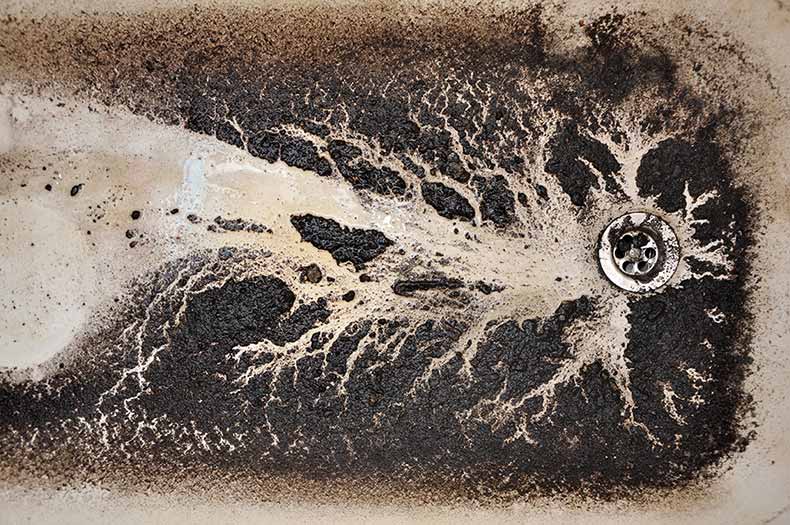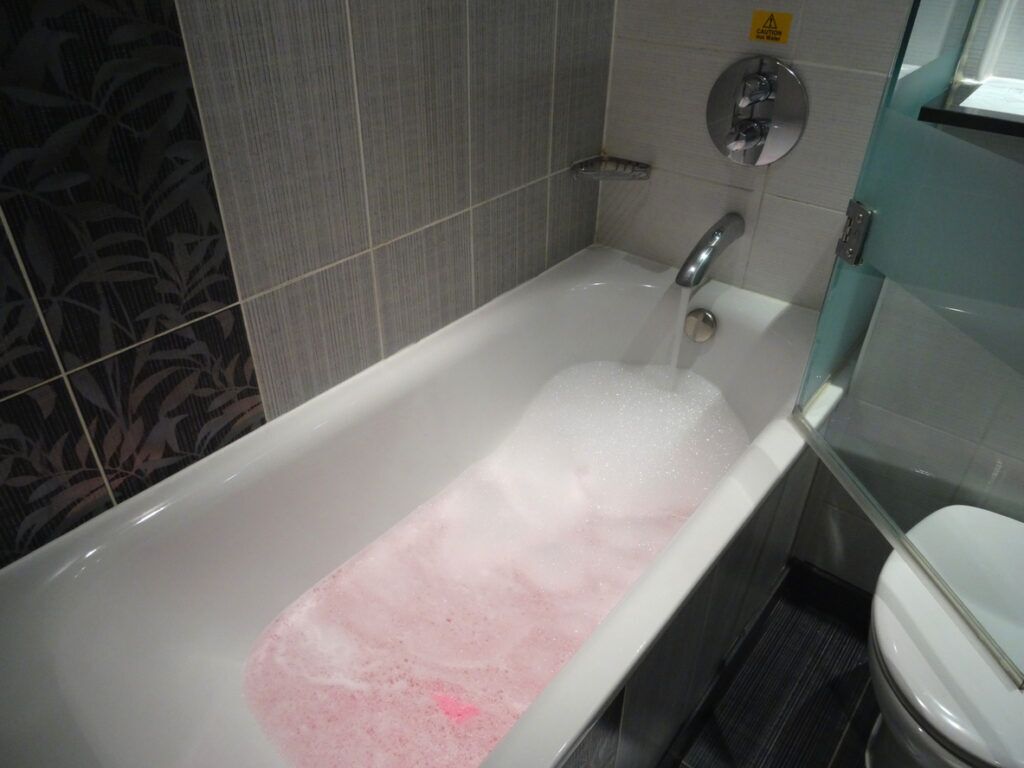Important Explanations for Discharge in the Bathtub
Important Explanations for Discharge in the Bathtub
Blog Article
How do you really feel with regards to Why is There Sewage Coming Up Through the Bathtub?

Sewer backup in the tub can be an upsetting and unhygienic problem for any type of property owner. Not only is it troublesome, however it additionally positions significant health dangers and indicates underlying problems with the plumbing system. Understanding why sewer is coming up through the bathtub is critical for taking appropriate activity to resolve the problem efficiently.
Introduction to the Concern
Common Reasons for Sewage Backup
Clogs in the Sewage System Line
Among one of the most usual causes of sewer back-up is a clog in the sewage system line. This can take place because of the build-up of debris, grease, or foreign objects in the pipelines, protecting against correct circulation and triggering sewage to support right into your bath tub.
Tree Root Intrusion
Tree origins looking for moisture and nutrients can penetrate drain lines through small splits or joints. Gradually, these roots can expand and broaden, causing considerable damages to the pipelines and resulting in sewer back-up concerns.
Recognizing the Trouble
When sewer draws back up right into the bathtub, it's a clear indication of a trouble with the drainage system. The wastewater that must be moving far from your home is instead discovering its back right into your space, which can lead to significant damage and carcinogen.
Potential Causes
Several factors can contribute to sewer back-up in the bath tub. From blockages in the sewer line to issues with the plumbing framework, recognizing the source is crucial for discovering a solution.
Aging Framework
Older homes may have dated plumbing systems that are a lot more prone to rust, fractures, and damage. As pipelines age, they come to be extra vulnerable to leakages and obstructions, enhancing the possibility of sewage back-up occurrences.
Heavy Rainfall or Flooding
Throughout periods of heavy rainfall or flooding, the sewer system might end up being overwhelmed with excess water, causing back-ups and overflows. This can lead to sewage backing up right into bathtubs and various other fixtures inside the home.
Indicators of Sewage Backup
Foul Odors
Undesirable smells emanating from drains or components, especially in the washroom, may indicate sewer back-up concerns. These smells are frequently solid and relentless, signifying a trouble that calls for prompt focus.
Slow Draining Fixtures
Bath tubs, sinks, and toilets that drain pipes gradually or otherwise in any way could be experiencing sewage backup. If multiple components are affected at the same time, it's likely that the concern stems from a common factor, such as the primary sewer line.
Gurgling Noises
Strange gurgling or gurgling noises coming from drains pipes when water is running elsewhere in the house are a sign of air caught in the plumbing system. This air accumulation can arise from sewage backup and ought to be examined quickly.
Wellness Dangers Connected With Sewage Backup
Contamination of Supply Of Water
Sewage backup can pollute the water in your home, posing a significant health and wellness danger to you and your family. Direct exposure to infected water can result in stomach issues, skin infections, and other illnesses.
Mold Growth
Wetness from sewage backup can produce suitable problems for mold and mildew development in your home. Mold spores can worsen respiratory system problems and cause allergic reactions in sensitive individuals, making timely clean-up essential.
Spread of Disease
Sewage consists of damaging germs, infections, and bloodsuckers that can create a series of conditions, consisting of liver disease, cholera, and gastroenteritis. Entering into contact with sewage or contaminated surfaces puts you in danger of infection.
Cleaning Up After Sewage Backup
Disinfection Procedures
Thoroughly sanitize and disinfect influenced locations after sewer back-up to get rid of dangerous germs and stop mold and mildew development. Usage proper cleaning products and protective equipment to make certain risk-free and efficient cleanup.
Restoration of Influenced Locations
Repair any damages to floor covering, wall surfaces, or components triggered by sewage back-up. Depending on the degree of the damage, you might require to replace carpets, drywall, or other products to recover your home to its pre-loss condition.
Immediate Actions to Take
Switching Off Water
In the event of sewage backup, it's vital to shut off the water to prevent further contamination and damage. Find the major water shutoff valve in your house and closed it off till the concern can be dealt with.
Calling a Specialist Plumber
Managing sewer back-up is not a DIY job. Contact a certified plumber with experience in managing sewage-related problems to evaluate the circumstance and carry out essential fixings or cleanings.
Preventing Contact with Infected Water
Till the sewer back-up is settled, stay clear of contact with polluted water to avoid the spread of bacteria and pathogens. Wear protective equipment if you have to remain in the damaged location and wash your hands thoroughly afterward.
Preventive Measures
Regular Maintenance of Drain Lines
Set up normal evaluations and maintenance of your sewer lines to recognize and deal with potential issues prior to they intensify into major troubles. This can consist of cleaning particles, evaluating for tree origin intrusion, and fixing any type of damaged pipelines.
Mounting Backwater Shutoffs
Take into consideration setting up bayou valves in your plumbing system to stop sewage from flowing back right into your home during periods of heavy rainfall or flooding. These shutoffs instantly close when water draws back up, protecting your home from contamination.
Appropriate Disposal of Household Waste
Stay clear of purging anything apart from bathroom tissue and human waste down the toilet to prevent clogs and obstructions in the drain line. Dispose of grease, oil, and other household chemicals correctly to lessen the danger of plumbing issues.
Why Is Water Backing Up in My Bathtub When I Flush My Toilet?
What to do about a sewer line clog
First, don’t bother with plunging. No amount of plunging will dislodge the clog in a sewer line. The clog is too far away. Plungers are for clogs in the toilet itself, not the sewer line. Plus, the most likely causes of a sewer clog are:
Tree roots Flushed toys or feminine products Grease buildup Those items don’t move easily. And in the case of tree roots, the roots need to be cut out of the pipe and the pipe will need to be repaired.
You’ll need a closet auger. A closet auger is a type of plumber’s snake with a protective cover to keep from scratching the delicate porcelain toilet. If the clog is further down, you may need to remove the toilet or use one of your cleanouts to get to the clog.
We also recommend doing a video inspection of the drain to ensure that the cause of the clog has been completely removed. Otherwise, you could have the same problem again in a few days or weeks.
https://mspplumbingheatingair.com/blog/why-is-water-backing-up-in-my-bathtub-when-i-flush-my-toilet

As an avid person who reads about What To Do If Sewage Starts Backing Up Into the Shower, I assumed sharing that information was appropriate. Enjoyed our blog? Please quickly share it. Let someone else find it. I praise you for being here. Come back soon.
Estimate Free
Report this page